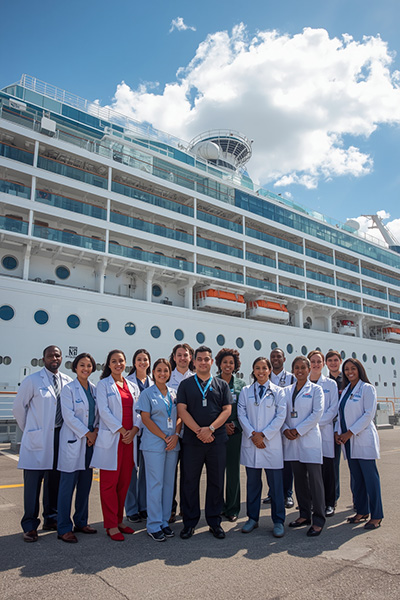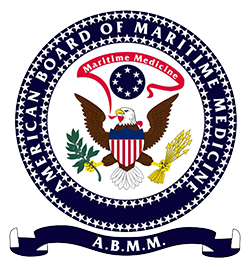Close-Co-operation
The ABMM believes that “close co-operation” is the hallmark of world success when dealing with multi-specialty multi-professional individuals and entities who strive to advance healthcare amongst seafarers and members of the maritime community. This concept was most vividly expressed in the International Labour Organization (ILO) C164 proclamation, Health Protection and Medical Care (Seafarers) Convention, 1987 (No. 164) wherein it is stated that in order to achieve success of action in the field of health protection and medical care for seafarers, it is important that “close co-operation” be maintained in their respective fields “between the International Labour Organisation [ILO], the International Maritime Organization [IMO] and the World Health Organization [WHO].”
In that regard, the ABMM recognizes and strongly supports the foundational hallmark of the ILO’s “close co-operation” wherein the ABMM pledges to develop and maintain close co-operations with historically foundational organizations such as the World Health Organization (WHO), International Maritime Organization (IMO), International Labour Organization (ILO), and American College of Emergency Physicians (ACEP). The ABMM hopes to meaningfully contribute in close co-operation with these noble and legion organizations and their many accomplishments.

Indeed, such “close co-operation” has provided a legion of improvements as related to the healthcare of seafarers. This is evidenced, de minimis, through provisions of the Medical Examination (Seafarers) Convention, 1946; the Accommodation of Crews Convention (Revised), 1949; the Accommodation of Crews (Supplementary Provisions) Convention, 1970; the Ships’ Medicine Chests Recommendation, 1958; the Medical Advice at Sea Recommendation, 1958; the Prevention of Accidents (Seafarers) Convention and Recommendation, 1970; and the International Convention on Standards of Training, Certification and Watchkeeping for Seafarers, 1978.
Further monumental evidence of such close co-operation and ultimate effectiveness in the realm of seafarer healthcare protections is the Convention concerning Health Protection and Medical Care for Seafarers (adopted in Geneva in 1987 and put into force in 1991). The ILO’s Maritime Labour Convention, 2006, as Amended (which includes the 2022 amendments) truly contributes to and consolidates the excellence of such close co-operation through its Title 4, Health protection, medical care, welfare and social security protection (Regulation 4.1).
Of course, further exemplifying the close co-operation and significant furtherance of healthcare protections for seafarers is the IMO’s International Convention on Standards of Training,
Certification and Watchkeeping for Seafarers (STCW) of 1978. The 1978 Convention laid the ultimate foundation for the Manila Amendments to the STCW Convention and Code which were adopted in 2010 and entered into force in January 2012.
Paralleling and contributing to the advancements of the healthcare protections for the seafarer are the contributions of the American College of Emergency Physicians (ACEP) which first created its guidelines in September 1995 followed by multiple revisions and advancements (Cruise Ship Health Care Guidelines Policy Resource and Education Paper (PREP).
This ACEP policy resource and education paper is an explication of the policy statement “Health Care Guidelines for Cruise Ship Medical Facilities” which has been reviewed, updated and revised by the Cruise Ship and Maritime Medicine Section of the ACEP on numerous occasions (September 2023; August 2023; August 2021, June 2014, April 2011, January 2010, December 2007, and October 2000).
The mission of the ACEP Cruise Ship Medicine Section is to improve the quality of medical practices aboard cruise ships and to enhance the role of emergency physicians in providing medical care within the cruise industry.
